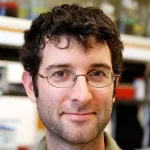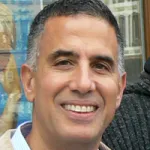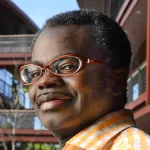
Inside Stanford Medicine - September 20, 2011
Five Stanford University faculty members are among this year’s recipients of special funding from the National Institutes of Health for proposals to pursue unconventional avenues of research.
The funding, announced Sept. 20, is being given in three categories: the NIH Director’s Pioneer, New Innovator and Transformative Research Project awards. Stanford’s recipients include one Pioneer Award, two New Innovator Awards and two Transformative Research Project Awards.
They are among 79 winners nationwide who will be receiving a total of $143.8 million for proposals that were singled out for being innovative and risk-taking.
“The awards are intended to catalyze giant leaps forward for any area of biomedical research, allowing investigators to go in entirely new directions,” said James Anderson, MD, PhD, director of the NIH’s Division of Program Coordination, Planning and Strategic Initiatives, which oversees the funding.
David Schneider, PhD, associate professor of microbiology and immunology, received an NIH Director’s Pioneer Award. To be considered “pioneering,” the proposed research must reflect ideas substantially different from those already being pursued in the investigator’s laboratory and elsewhere.
Schneider will use his $2.5 million award over the next five years to study resilience, defined as the ability of an organism to be perturbed by, for example, infection and then return to its original state.
“We are planning to concentrate on how a host recovers from an infection instead of the usual approach, which is to ask how sick they will get,” Schneider said, adding that he sees recovery from infection as an active process that is not simply the opposite of the route that leads from health to sickness.
“The fundamental question we’re asking is: Does the way we get better differ from the way we get sick?” he said. Learning the answer will include testing to see whether mechanisms known to be involved in declining health are also involved in recovery; identifying novel mechanisms involved in recovery; and developing a mathematical model that can predict resilience.
C. Jason Wang, MD, PhD, acting associate professor of pediatrics, and Hunter Fraser, PhD, assistant professor of biology, received New Innovator Awards, which will provide each of them with $1.5 million in research funds over five years. The award is designed to support unusually creative investigators at an early stage of their careers.
Wang will use his award to study how to motivate patients to do a better job of following medical advice. Right now, 20 to 30 percent of doctors’ recommendations are ignored, with millions of patients failing to take their medications, follow diet and exercise advice, or adhere to other treatments. Poor adherence hurts patients’ health and increases health-care costs.
“This is a very difficult problem,” Wang said. To tackle it, his team will design a smart phone application that links health behaviors to activities that individual patients already enjoy.
Wang plans to conduct a study in which each patient will select a reward that motivates him or her, such as receiving extra points for a favorite video game. Patients will be randomized to receive different kinds of “nudges” to promote healthy behavior, such as reminder messages or information about the benefits of the good behavior. The researchers will target four areas where treatment adherence is poor: tooth flossing; diet and exercise modification among obese patients; and asthma and diabetes treatment.
“This is the last mile of health-care delivery,” Wang said. “Doctors can follow treatment guidelines, but at the end of the day, if patients don’t follow through, treatment recommendations are not going to be effective.”
Fraser studies the evolution and regulation of protein expression. Although some evolutionary changes are due directly to changes in protein amino acid sequences, shifts in the quantity and expression patterns of those proteins are often important sources of new adaptations. Expression regulation is often viewed as the major source of novel traits, despite a shortage of in-depth studies of the topic.
The topic is of more than academic interest. By identifying the expression changes that have been most intensely selected for, researchers may be able to pinpoint the genes responsible for a wide range of phenotypes — including those involved in human diseases — as well as the selection pressures responsible for those mutations.
Fraser’s work has previously involved performing genome-wide scans of expression-level selection in a variety of species, and predicting the phenotypic effects of individual mutations in yeast.
Jody Puglisi, PhD, professor and chair of structural biology, and Kwabena Boahen, PhD, associate professor of bioengineering, each received Transformative Research Project Awards.
These awards were created to support research projects that have the potential to create or overturn fundamental paradigms. The program focuses on creative ideas — projects that offer the possibility of transforming a field of science — rather than creative individuals per se. The amount of these awards varies; in some cases, investigators have not yet been notified of the full amount they will receive.
Puglisi and his co-principal investigators — Peter Sarnow, PhD, professor and chair of microbiology and immunology, and Elisabetta Viani Puglisi, PhD, assistant professor of structural biology — will use the award to explore a novel method for studying a crucial process constantly under way in cells and known as translation: the synthesis of proteins in cells by ribosomes. These are the complex molecular machines that create proteins, one subunit at a time, based on genetic instructions carried to them from the cell nucleus in the form of long nucleic-acid sequences called messenger RNA, or mRNA.
“We have developed new single-molecule methods that can track single ribosomes as they translate an mRNA. Our goal is to understand how this process might be regulated and how misregulation and control can lead to disease,” Puglisi said. “This grant will allow us to go beyond preliminary demonstration of our approach to real applications.”
Boahen and co-investigator Krishna Shenoy, PhD, associate professor of electrical engineering, will work on bringing brain-machine interfaces closer to the clinic by leveraging recent advances in systems neuroscience and neuromorphic engineering. Their work could lead to a chip implanted in the brain that translates signals recorded by microelectrodes into control signals for a robotic arm.
“Millions suffer profound movement impairment from neurological injuries and disease. We can circumvent the impairments by ‘reading’ neural electrical activity directly from motor structures in the brain and decoding the signals in order to execute the intended movement with a robotic arm,” said Boahen.




